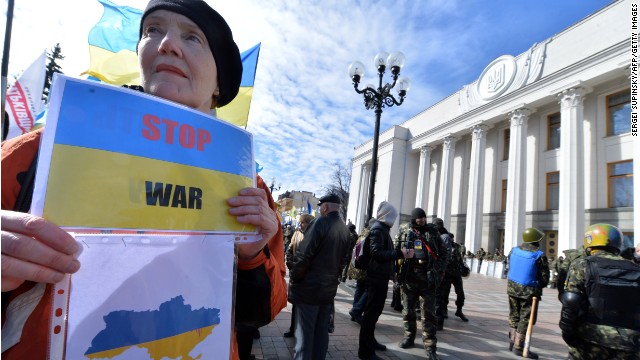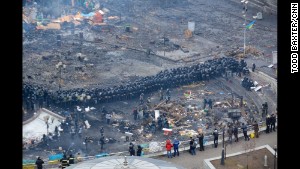
Crimeans voted to break off from Ukraine
and join Russia. Their vote represents the re-establishment of a
historic cultural relationship.
But take away the
emotional side of the Crimean referendum and reality hits home -- the
economic challenges that are yet to knock on their door.
Crimea is entirely integrated into Ukraine's mainland economy and infrastructure.
The peninsula only
produces one-tenth of the energy it consumes. Ninety percent of its
water, 80% of its electricity, and roughly 65% of its gas come from the
rest of Ukraine.

Former Kremlin adviser talks Crimea

Voices on the Ukraine/Crimea referendum

Some leaving Crimea ahead of referendum

Expert: Crimea to affect global economy
And while Russia has
enough energy to supply power to Crimea, it's lacking the infrastructure
-- there are not even any underwater cables though the Strait of Kerch,
which separates Russia and Crimea.
Crimean authorities set
out their plan to nationalize the oil and gas company Chernomorneftegaz,
but according to Lilit Gevorgyan, Senior Economist at IHS, that may not
be enough to "solve fully their energy problems and ... become
independent of Ukraine."
And the costs don't end there.
Crimea depends heavily on
the Ukrainian mainland to balance its books. Around 70% of Crimea's
$1.2 billion budget comes directly from Kiev.
Annexation of Crimea
would be costly for Russia too because Crimea will need similar support,
if not more, from Moscow. And while Russia's economy is stable, it is
not growing.
Moscow recently
announced it will invest between $5 billion and $6 billion in Crimea,
according to Helena Yakovlev Golani at the University of Toronto. The
costs begin to add up -- and that's not including the challenges of
integrating the banking system and currency and validating land titles.
For the Crimeans, the
most noticeable change could be the lack of tourists this season, with
many expecting visitors to cancel tours because of the crisis.
This will be damaging
for Crimea, according to Ukraine's Tourism Board, given that Crimea
attracted 6 million tourists last year. Seventy percent of holiday
makers in the region are domestic visitors from mainland Ukraine.
The crisis has been
portrayed as a geopolitical struggle between Russia and the West, but it
will also affect ordinary people; they still need to eat, pay bills and
dress their children.
Some in Crimea have
portrayed the situation as an economic crisis, but actions on the ground
suggest this is less about the economy and more about Russia's desire
to project power in a strategically important region.
No comments:
Post a Comment